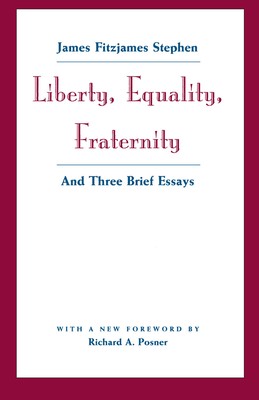
- We will send in 10–14 business days.
- Author: James Fitzjames Stephen
- Publisher: University of Chicago Press
- ISBN-10: 0226772586
- ISBN-13: 9780226772585
- Format: 13.9 x 21.6 x 2.3 cm, minkšti viršeliai
- Language: English
- SAVE -10% with code: EXTRA
Reviews
Description
With great energy and clarity, Sir James Fitzjames Stephen (1829-1894), author of History of the Criminal Law of England, and judge of the High Court from 1879-91, challenges John Stuart Mill's On Liberty and On Utilitarianism, arguing that Mill's view of humanity is sentimental and utopian.
"His writing is strong meat-full of the threat of hellfrire, the virtue of government by the lash and a fervent belief that the state cannot remain neutral but has a duty to espouse a moral code."-Roderick Munday, Cambridge Law JournalEXTRA 10 % discount with code: EXTRA
The promotion ends in 21d.18:11:35
The discount code is valid when purchasing from 10 €. Discounts do not stack.
- Author: James Fitzjames Stephen
- Publisher: University of Chicago Press
- ISBN-10: 0226772586
- ISBN-13: 9780226772585
- Format: 13.9 x 21.6 x 2.3 cm, minkšti viršeliai
- Language: English English
With great energy and clarity, Sir James Fitzjames Stephen (1829-1894), author of History of the Criminal Law of England, and judge of the High Court from 1879-91, challenges John Stuart Mill's On Liberty and On Utilitarianism, arguing that Mill's view of humanity is sentimental and utopian.
"His writing is strong meat-full of the threat of hellfrire, the virtue of government by the lash and a fervent belief that the state cannot remain neutral but has a duty to espouse a moral code."-Roderick Munday, Cambridge Law Journal

Reviews